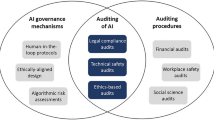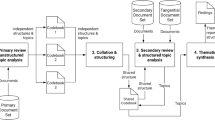Abstract
This essay discusses engineering ethics in Puerto Rico by examining the impact of the Colegio de Ingenieros y Agrimensores de Puerto Rico (CIAPR) and by outlining the constellation of problems and issues identified in workshops and retreats held with Puerto Rican engineers. Three cases developed and discussed in these workshops will help outline movements in engineering ethics beyond the compliance perspective of the CIAPR. These include the Town Z case, Copper Mining in Puerto Rico, and a hypothetical case researched by UPRM students on laptop disposal. The last section outlines four future challenges in engineering ethics pertinent to the Puerto Rican situation.
Similar content being viewed by others
Notes
In 1998, law 333 was passed to “declare as a major crime the unlawful practice of engineering and surveying.” (Author translation) It goes on to characterize unlawful practice as practice without a licence and without affiliation with the CIAPR. Accessed: 3/7/08 at http://ciapr.org/leyes/ley333.html.
This information and a copy of the table the CIAPR constructed to map Puerto Rican engineering ethics issues onto existing U. S. codes was provided to the authors in 1996 by one of the CIAPR officials who participated in the drafting of the 1994 code. William Frey along with Elena Lugo (one of the founders of engineering ethics in Puerto Rico) participated in the code drafting process in 1994 as consultants.
Some of these legal powers were established through the case, CIAPR vs. Autoridad de Acueductos y Alcantarillados (AAA) and Metcalf & Eddy. According to Marrero [8] this case established that “only individuals are allowed to practice and offer architectural, engineering, and land surveying services. Corporations are not.” This point is reinforced by Muñoz in his discussion of requirements for professional practice [3, p. 268].
In case 2005-RTDEP-001 [4], practical norm 1d was evoked when an engineer failed to notify concerned authorities after he observed colleagues bribing public officials, even though their actions did not pose a direct threat to public health, safety, and welfare. Practical norm 1d states that “when one [an engineer] knows or has sufficient reason to believe that another engineer or surveyor has violated the provisions of this Code, or that a person or firm has placed in danger the safety, environment, health or wellbeing of the community, he shall present such information in writing to concerned authorities….”
The Colegio Dominicano de Ingenieros, Arquitectos y Agrimensores or CODIA code of ethics emphasizes corruption and compliance issues like upholding the reputation of the profession, obeying laws, avoiding misuse of position, and refraining from offering or accepting bribes. Even Provision 15, which refers explicitly to the ethical principles of justice and loyalty, emphasizes avoiding violating these values rather than exhorting engineers to affirm them: “It is considered contrary to ethics and incompatible with fitting exercise of the profession to…violate deliberately the principles of justice and loyalty in one’s relations with clients, personnel, subordinates, and workers….” [14] The Pipiota and Ingeniero Santiago cases written during a workshop on engineering ethics at the Pontificia Universidad Católica Madre y Maestra (PUCCM) held in Santo Domingo, Dominican Republic during March 2004 also focus on corruption in engineering practice.
Thanks to the students in the two Recycling Groups: Group One (Bryan Morales, Ariel Castro, Lizbeth Matos, Marianne Sánchez, and Miguel Santiago) and Group Two (Adam Tosado, Isaac Lamboy, Onix Rogriguez, Darwin Morales, Juan Rodríguez, and Neil Rosas). Thanks also to Dr. Ivan Baiges’ recycling class and to Caribbean Hi-Tech Recyclers, a company specializing in recycling computers located in Guánica, Puerto Rico, www.pcrecyler.com.
References
Huff, C., Barnard, L., & Frey, W. (2007). Good computing: A pedagogically focused model of virtue in the practice of computing (Under review).
Colegio De Ingenieros Y Agrimensores, Leyes Relacionadas con la Práctica de las Profesiones: Ley #173, Ley #319 Y Ley #12: 24–25. Pamphlet published by CIAPR.
Muñoz-Román, W. (1997). Ética en la Práctica Profesional de la Ingeniería: Aspectos Filosóficos, Históricos y Procesales. San Juan, Puerto Rico: Universidad Politecnica de Puerto Rico (Co-sponsored by the Universidad Politécnica de Puerto Rico).
Mitcham, C., & García de la Huerta, M. (2001). La Ética En La Profesión de Ingeniero: Ingeniería y ciudadanía (pp. 151–161). Santiago, Chile: EDEH, Universidad de Chile.
Canones de Ética and Decisions of the CIAPR Disciplinary and Ethics Tribunal. Available from http://ciapr.org/images/etica.html. Accessed 17 January 2008.
Gilman, S. C. (2003). Government ethics: If only angels were to govern!. Phi Kappa Phi Forum, 83(2), 29–33.
Lugo, E. (1985). Etica Profesional Para La Ingenieria (pp. 246–248). Puerto Rico: Libreria Universal, Mayagüez.
Marrero, M. (1994). Clients beware of illegal services, San Juan Star—Monday, 17 October 1994: 19.
Herkert, J. R. (2001). Future directions in engineering ethics research: Microethics, macroethics and the role of professional societies. Science and Engineering Ethics, 7(3), 403–414.
Frey, W. J. (1998). Technology and ethics: Some lessons in Puerto Rico. Interdisciplinary Humanities, 15(2), 227–239.
Cruz, J. A., & Frey, W. J. (2003). An effective strategy for integration ethics across the curriculum in engineering: An ABET 2000 challenge. Science and Engineering Ethics, 9(4), 543–568.
Johnson, M. (1993). Moral imagination: Implications of cognitive science for ethics (pp. 171–184). Chicago: University of Chicago Press.
Huff, C. S., & Rogerson, S. (February 2006). Craft and reform in moral exemplars in computing. Paper Presented Febuary 27, 2006 at St. Olaf College, Colloquium of the Philosophy Department. Revisised versión presented at ETHICOMP2005 in Linköping, Sweden.
Colegio Dominicano de Ingenieros, Arquitectos y Agrimensores – CODIA, Reglamento Interno Estatutario Y Leyes 6160, 6201 y 6200: 61–62. Pamphlet published by CODIA.
Lutjen, G. P. (1971). The curious case of Puerto Rican copper mines. Engineering and Mining Journal, February 1971.
Whitbeck, C. (1998). Ethics in engineering practice and research. Cambridge, U.K.: Cambridge University Press.
van de Poel, I. (2001). Investigating ethics issues in engineering design. Science and Engineering Ethics, 7(3), 429–446.
Paine, L. S. (1994). Managing for organizational integrity. Harvard Business Review, 72(2), 106–117.
Weaver, G. R., & Treviño, L. K. (1999). Compliance and values oriented ethics programs: Influences on employees’ attitudes and behavior. Business Ethics Quarterly, 9(2), 315–335.
Colby, A., & Damon, W. (1992). Some do care: Contemporary lives of moral commitment. New York: Free Press.
Pritchard, M. S. (1998). Professional responsibility: Focusing on the exemplary. Science and Engineering Ethics, 4(2), 215–233.
May, L. (1992). Sharing responsibility. Chicago: University of Chicago Press.
May, L. (1996). The socially responsive self. Chicago: University of Chicago Press.
Unger, S. H. (1994). Controlling technology: Ethics and the responsible engineer (2nd ed.). New York: John Wiley & Sons, INC.
Unger, S. H. “The Assault on IEEE Ethics Support” Online Ethics Center for Engineering 6/22/2006 10:19:12 AM National Academy of Engineering. www.onlineethics.org/CMS/workplace/17080/wrongfulessays/unghot.apsx. Accessed Sunday 13 January 2008.
Smith, J. H., & Harper, P. M. (Eds.). (2004). Engineering ethics: Concepts, viewpoints, cases and codes (pp. 222–324). Lubbock, TX: National Institute for Engineering Ethics (NIEE).
NSPE Board of Ethical Review. (1991). Certification of work performed by technician: Case 91–8. www.murdough.ttu.edu/pdd.cfm?pt=NIEE&doc=EthicsCases. Accessed 13 January 2008.
These two books serve as the outstanding resources for understanding engineering ethics in Puerto Rico
Lugo, E. (1985). Etica Profesional Para La Ingenieria. Mayagüez, Puerto Rico: Libreria Universal.
Muñoz-Román, W. (1997). Ética en la Práctica Profesional de la Ingeniería: Aspectos Filosóficos, Históricos y Procesales. San Juan, Puerto Rico: Universidad Politecnica de Puerto Rico. (Co-sponsored by the Universidad Politécnica de Puerto Rico).
Acknowledgements
The occasion for this work was a panel on engineering ethics in different Latin-American countries carried out at the “V Encuentro Iberoamericano de Institiciones de Enseñanza de la Ingeniería” sponsored by ASIBEI (Asociación Iberoamericano de Instituciones de Enseñanza de Ingeniería) and held in Morelia, Mexico on December 5, 2005. The authors would like to thank Juan Lucena and Carl Mitcham for organizing this panel and the National Science Foundation (through grants SBR 9810253, SES 0551779 and SES 0629377) for supporting the ethics initiatives held at the University of Puerto Rico – Mayagüez (UPRM) that form the basis of this paper. Finally, the authors would like to acknowledge the pioneering work on engineering ethics in Puerto Rico done by Elena Lugo and Wilfredo Muñoz Román.
Author information
Authors and Affiliations
Corresponding author
Rights and permissions
About this article
Cite this article
Frey, W.J., O’Neill-Carrillo, E. Engineering Ethics in Puerto Rico: Issues and Narratives. Sci Eng Ethics 14, 417–431 (2008). https://doi.org/10.1007/s11948-008-9065-6
Received:
Accepted:
Published:
Issue Date:
DOI: https://doi.org/10.1007/s11948-008-9065-6




